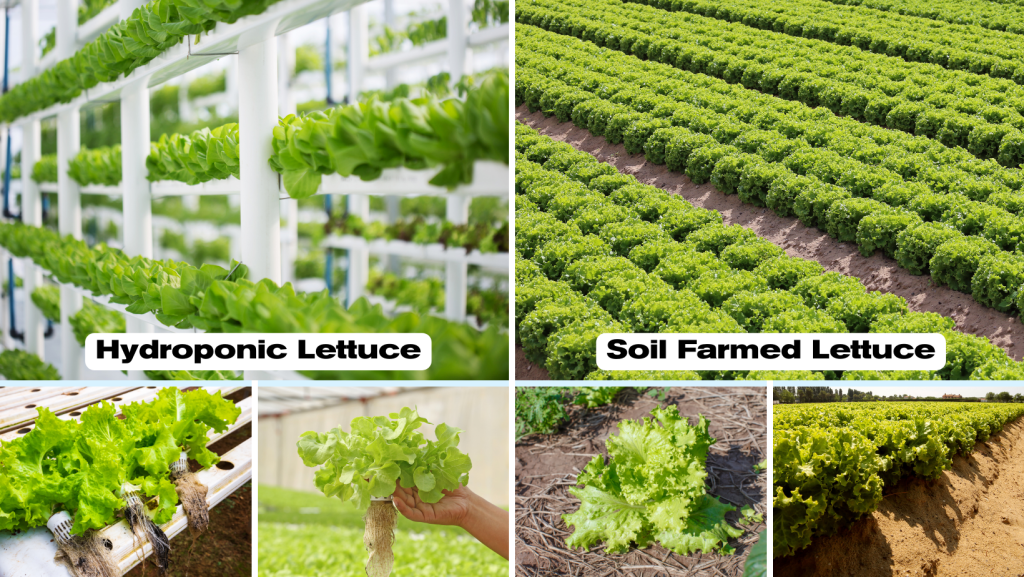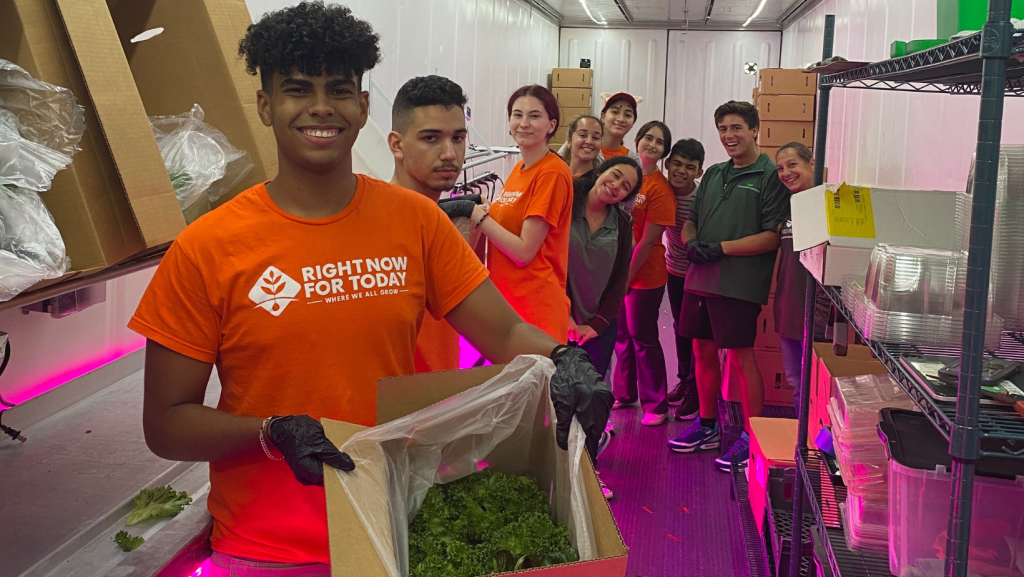This blog was written by Luis Acosta, a 4-H Teen Ambassador in Miami-Dade County.
“Eat Your Greens!” Most people have heard this saying several times throughout their childhood. Leafy greens are good for the human body because of their rich nutritional value in vitamins, minerals, and fiber. With technological innovations, modern farmers have begun to grow lettuce in a hydroponic environment.
What is hydroponic farming?

Hydroponic farming is a method of controlled environment agriculture that allows farmers to control the water and sunlight, as well as more specific things like vitamins and nutrients.
What are the benefits of farming hydroponic lettuce?
Depending on the nutrient solution hydroponic plants are grown in, they can be just as nutritious as soil-grown lettuce. Not only are hydroponic crops just as nutritious as their counterparts, but they can also grow without pesticides and herbicides. Controlled environment agriculture also offers added sanitation benefits. Ultimately, this allows farming to be safer for your health than soil-grown lettuce.
- Exposure to pesticides, herbicides, & Insecticides: Human Health Effects. The Institute for Functional Medicine. (2022, September 20). https://www.ifm.org/news-insights/exposure-pesticides-herbicides-insecticides-human-health-effects/
- Dupuis, A. (2023, March 17).The Health & Nutrition of Hydroponic Foods. Eden Green. https://www.edengreen.com/blog-collection/is-hydroponic-food-nutritious#:~:text=The%20vitamin%20content%20of%20your,content%20as%20soil%2Dgrown%20plants
- Dupuis, A. (2023a, January 19). Hydroponic lettuce: Everything you need to know. Eden Green. https://www.edengreen.com/blog-collection/hydroponic-butterhead-lettuce
While soil farming has strength for today, we need to find alternatives as to how to feed a growing and hungry planet. And as you look at this in the way of the future, this is what is going to get us to feeding a hungry planet
The way plants obtain nutrients is through the minerals in the soil. So, there is a misconception that hydroponic lettuce isn’t as nutritious as soil-grown lettuce because they don’t grow in any soil. However, hydroponic farms give their plants plenty of nutrients, it’s just in a different way. Hydroponic farms feed their plants by giving them a Nutrient solution through their water. Allowing the plant to absorb all the nutrients and minerals they may need. Veggies grown in a well-designed and scientifically formulated hydroponic system will have essentially the same mineral content as soil-grown plants. An example is butterhead lettuce. Hydroponic butterhead lettuce has all the same health benefits as its soil-grown counterparts. That being said, hydroponic lettuce can be just as nutritious as soil-grown lettuce.

A more more controlled and safer environment
Growing lettuce hydroponically is considered safer compared to traditional soil farming as it eliminates the need for pesticides and herbicides. These chemicals, while approved for use, have been linked to various health risks such as cancer and disruptions in metabolic, reproductive, immune, endocrine, and nervous systems. Hydroponic farming avoids the health risks from farm chemicals because it’s done in a controlled space that doesn’t need them. This means the lettuce is cleaner and better for you. However, it is important to note that not all hydroponic farms are chemical free as well not all soil-grown farms use these chemicals.
Hydroponic farming is a smart way to grow lettuce because it doesn’t need soil or the chemicals often used on regular farms. It’s a clean method that works all year long, no matter the weather, so you always get fresh lettuce. Plus, it’s not limited by location—you can set up a hydroponic farm just about anywhere.
As we look for more efficient ways to feed our planet, hydroponic farming is beacon of innovation. Keep choosing those clean greens, and here’s to a well-fed future!


Written by:
Luis Acosta, 4-H Teen Ambassador
Miami-Dade County
 3
3
